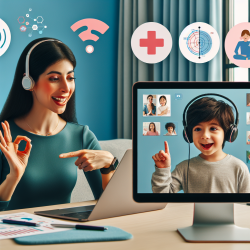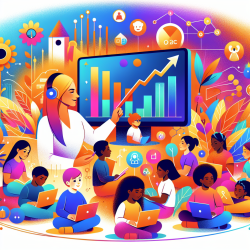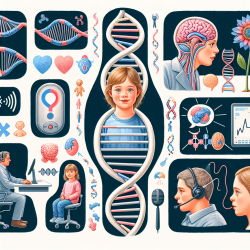The global pandemic has profoundly impacted education, highlighting the need for reforms that address the complexities of modern learning environments. As a practitioner in online therapy, especially within special education, it’s crucial to adapt and evolve based on recent research findings. The study "In Search of a Twenty-First Century Education Renaissance after a Global Pandemic" by Fernando M. Reimers provides insightful strategies that can help you improve your skills and offer better support to students.
Understanding the Research
The research emphasizes the need for a comprehensive approach to education that focuses on educating the whole child. This involves not only academic skills but also emotional, social, and practical life skills. Here are some key takeaways:
- Broader Curriculum Goals: Schools should aim to provide a well-rounded education that includes social and emotional learning alongside traditional academic subjects.
- Equity in Education: Addressing the disparities in educational opportunities is crucial. This means providing additional support to marginalized students to ensure they have the same opportunities to succeed.
- System-Level Reforms: Implementing large-scale reforms requires understanding the specific needs and capacities of the education system. Tailoring strategies to fit the existing infrastructure can help achieve more ambitious educational goals.
Practical Steps for Online Therapy Practitioners
Based on the research, here are some actionable steps you can take to improve your online therapy practice:
- Integrate Social and Emotional Learning: Incorporate activities that promote emotional regulation, empathy, and social skills into your therapy sessions. This can help students develop resilience and better cope with challenges.
- Focus on Equity: Identify students who may need additional support and tailor your therapy sessions to meet their unique needs. This could involve providing extra resources or adjusting your approach to ensure they are fully engaged.
- Leverage Technology: Utilize digital tools and platforms to create interactive and engaging therapy sessions. This can help maintain student interest and make learning more accessible.
- Collaborate with Educators: Work closely with teachers and school administrators to align your therapy goals with the broader educational objectives. This can create a more cohesive support system for students.
Encouraging Further Research
The research by Reimers underscores the importance of continuous learning and adaptation. As an online therapy practitioner, staying updated with the latest research and trends in education can significantly enhance your practice. Here are some ways to stay informed:
- Attend Webinars and Workshops: Participate in professional development opportunities that focus on the latest advancements in online therapy and special education.
- Join Professional Networks: Engage with communities of practice where you can share insights and learn from other professionals in the field.
- Read Academic Journals: Regularly review scholarly articles and publications to stay abreast of new research findings and methodologies.
By implementing these strategies and staying informed, you can enhance your skills and provide more effective support to your students. To read the original research paper, please follow this link:
In Search of a Twenty-First Century Education Renaissance after a Global Pandemic.










